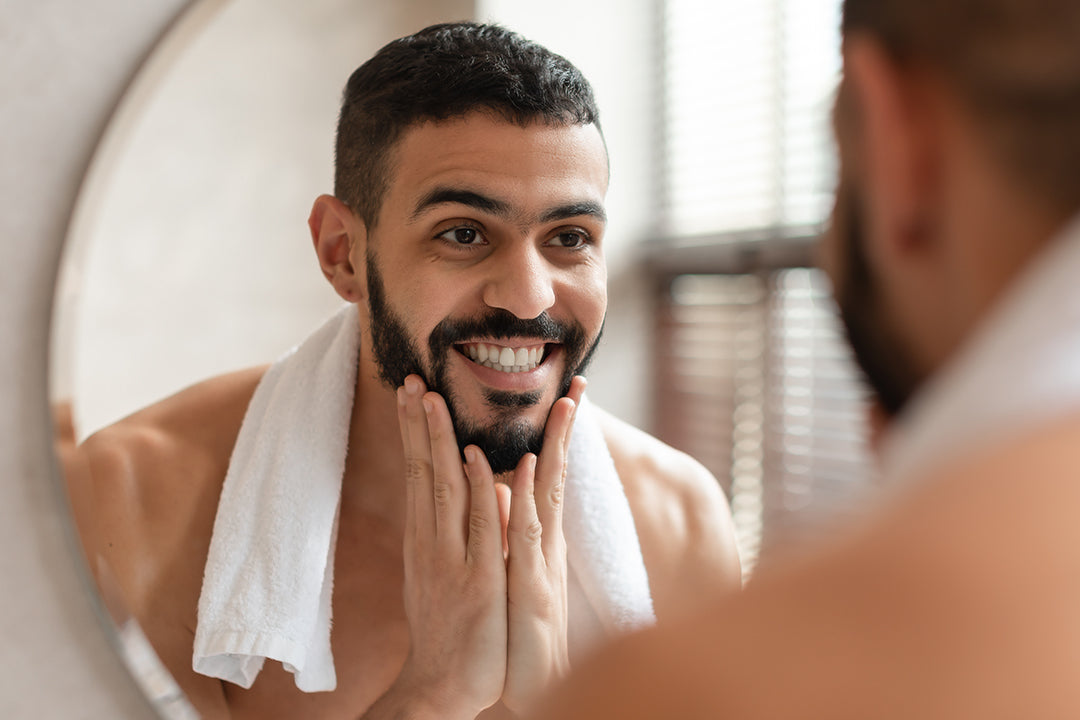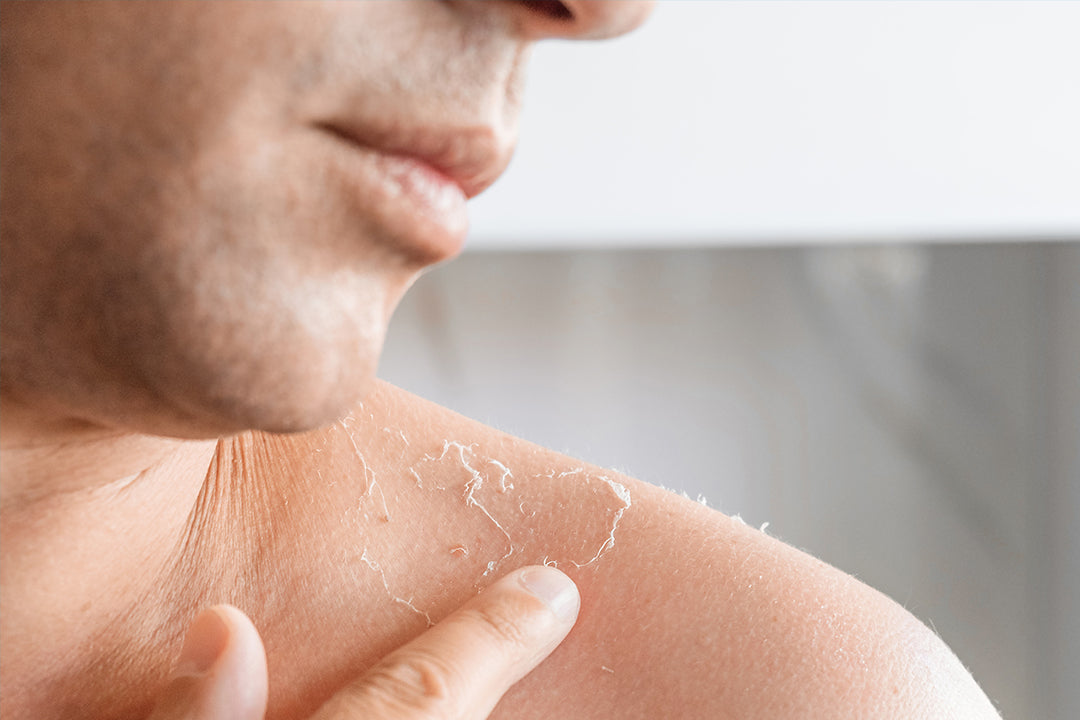Do you moisturize regularly and still struggle with dry skin? You're not alone. Many people face the same issue, wondering why their skin remains dry even after applying moisturizers. In this article, we will explore the possible reasons behind this problem and provide you with effective solutions to bring back moisture to your skin.
Reasons Your Skin Feels Dry Even After Moisturizing
1. Not exfoliating
Exfoliating is an essential step in any skincare routine, as it helps remove dead skin cells and promotes cell turnover. When dead skin cells accumulate on the surface of your skin, they can prevent your moisturizer from effectively penetrating the skin, leaving it dry and flaky.
To combat this, incorporate gentle exfoliation into your skincare routine. Look for products with mild exfoliating agents like alpha-hydroxy acids (AHAs) or beta-hydroxy acids (BHAs). These ingredients help slough off dead skin cells without causing irritation.
2. Overwashing
Washing your face too frequently or using harsh cleansers can strip away your skin's natural oils, leading to dryness. While it's important to keep your skin clean, overwashing can disrupt the skin barrier and cause moisture loss.
Instead, opt for a gentle cleanser that is suitable for your skin type. Look for products labeled as hydrating or moisturizing, as they can help replenish the moisture in your skin while cleansing.
3. Dehydration or malnutrition
Dehydration can also contribute to dry skin, as it affects your skin's ability to retain moisture. Make sure you're drinking enough water throughout the day to stay hydrated. Additionally, a well-balanced diet rich in essential nutrients can support healthy skin.
If you suspect a nutritional deficiency, consult a healthcare professional or a registered dietitian who can guide you on the right foods to incorporate into your diet.
4. Using a harsh cleanser
Certain cleansers can be too harsh for your skin, especially if they contain sulfates or fragrances. These ingredients can strip away your skin's natural oils, leaving it dry and irritated.
Switch to a gentle cleanser that is free of sulfates and fragrances. Look for products that are labeled as mild or gentle, as they are less likely to cause dryness.
5. Your moisturizer's ingredients have lost effectiveness
Over time, the active ingredients in your moisturizer may lose their effectiveness. This can happen due to exposure to air, sunlight, or simply because the product has expired.
Check the expiration date on your moisturizer and make sure to store it in a cool, dark place to preserve its potency. If your moisturizer is past its expiration date or has been exposed to unfavorable conditions, it's time to replace it with a fresh one.
6. Your skin might need a different product
Not all moisturizers are created equal, and what works for one person may not work for another. If your current moisturizer isn't providing enough hydration, it might be time to switch to a different product.
Look for moisturizers that are formulated specifically for dry or sensitive skin. These products usually contain ingredients like hyaluronic acid, glycerin, or ceramides, which help lock in moisture and improve skin hydration.
7. Side effects of certain medications and medical treatments
Some medications and medical treatments can cause dry skin as a side effect. If you suspect that your dry skin is a result of your medication, consult your healthcare provider. They may be able to adjust your dosage or recommend alternative treatments.
8. Skin conditions
Certain skin conditions, such as eczema or psoriasis, can make your skin prone to dryness. If you have an underlying skin condition, it's essential to seek treatment from a dermatologist. They can recommend appropriate skincare products and treatments to manage your condition and alleviate dryness.
9. A cold, dry climate
Living in a cold, dry climate can also contribute to dry skin. Cold air and low humidity can strip moisture from your skin, leaving it dry and dehydrated.
Combat this by using a humidifier in your home to add moisture to the air. Additionally, make sure to protect your skin with a moisturizer and wear appropriate clothing to shield yourself from harsh weather conditions.
10. Very hot showers, baths, or exposure to chlorinated water
While hot showers or baths can be relaxing, they can also strip away your skin's natural oils, leading to dryness. Similarly, exposure to chlorinated water, such as in swimming pools, can have a drying effect on the skin.
Try to limit the duration of your showers or baths and use lukewarm water instead of hot water. Afterward, pat your skin dry gently and apply a moisturizer immediately to lock in the moisture.
Solutions for Dry Skin After Moisturizing
Now that you know the possible reasons behind your dry skin, here are some solutions to help you combat this issue:
1. Moisturize right after bathing
Applying moisturizer immediately after bathing helps lock in the moisture and prevents water loss from your skin. Pat your skin dry gently with a towel, leaving it slightly damp, and then apply your moisturizer.
2. Find the right moisturizer
Finding the right moisturizer for your skin is crucial. Look for products that contain hydrating ingredients like hyaluronic acid or ceramides. These ingredients help replenish moisture and strengthen the skin barrier.
Consider trying QRxLabs's moisturizers, which are formulated to provide deep hydration without feeling heavy or greasy. Their products are free of parabens and silicones, making them suitable for those seeking gentle yet effective skincare.
3. Moisturize in the morning and before bedtime
Make moisturizing a part of your daily skincare routine by applying it in the morning and before bedtime. This helps keep your skin hydrated throughout the day and night.
4. Use a hydrating toner
Incorporating a hydrating toner into your skincare routine can provide an extra layer of hydration. Look for toners that contain ingredients like rose water, aloe vera, or glycerin, which help attract and retain moisture in the skin.
5. Use a serum
Serums are concentrated formulas that deliver active ingredients deep into the skin. Look for serums that contain hyaluronic acid or niacinamide, as they are known for their hydrating properties.
6. Use creams instead of lotions
If your skin still feels dry after using a lotion, consider switching to a cream-based moisturizer. Creams tend to have a thicker consistency and provide more intense hydration for dry skin.
Remember, achieving hydrated and healthy skin is a journey. By understanding the possible causes of dry skin and following the solutions provided in this article, you can take proactive steps toward achieving a moisturized complexion. Take care of your skin, embrace self-care, and enjoy the benefits of a well-hydrated and glowing complexion!









